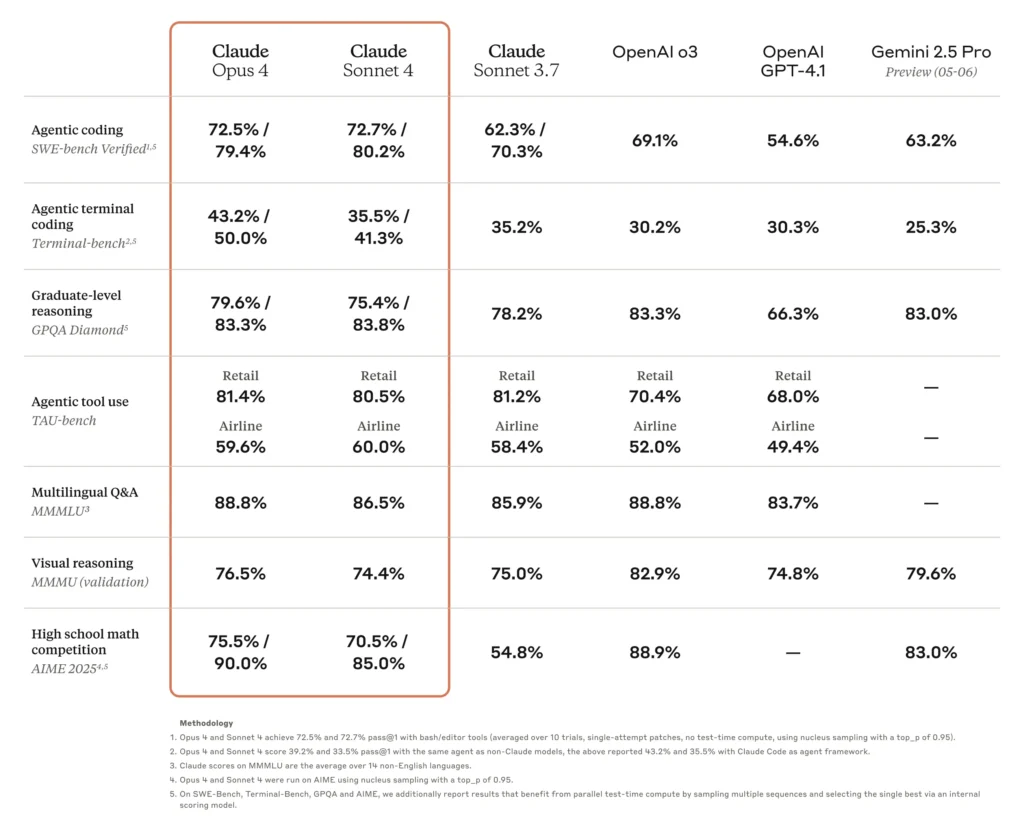Anthropic, an AI research company founded by former OpenAI researchers, has made significant strides in the development of large language models (LLMs). The company’s mission focuses on creating safe and highly capable AI models that align with human values. Anthropic Claude series, named after Claude Shannon, a key figure in information theory, has been at the forefront of their AI advancements. With a particular emphasis on safety, reliability, and efficiency, the Claude models have garnered attention for their ability to excel in coding, reasoning, and long-term task execution.
At the recent developer conference, Anthropic introduced two new models, Claude Opus 4 and Claude Sonnet 4, both part of their Claude 4 family. These models are designed to handle large datasets and execute complex, long-running tasks that require sustained focus. Claude Opus 4, the more capable of the two, is optimized for coding, problem-solving, and agentic workflows, making it highly effective for tasks that demand consistent performance over an extended period. Meanwhile, Claude Sonnet 4, an upgrade from Sonnet 3.7, is focused on improving coding, reasoning, and precision in instruction following, offering a more efficient model for everyday use.
Claude Opus 4 stands out for its performance on programming benchmarks, surpassing models like Google’s Gemini 2.5 Pro and OpenAI’s GPT-4.1 on tasks related to software engineering.

However, it has limitations when it comes to multimodal evaluations and complex scientific queries. Despite these limitations. Opus 4 is a highly versatile model that can use multiple tools in parallel, including search engines, and is designed to alternate between reasoning and using these tools to provide higher-quality responses. The model’s enhanced memory capabilities allow it to build a knowledge base over time, improving its ability to handle recurring tasks and making it a powerful asset for developers and businesses alike.
Sonnet 4, on the other hand, is tailored for tasks that require a balance of performance and efficiency. It excels in agentic tasks, autonomous workflows, and can follow complex instructions with improved clarity. This model is a significant improvement over Sonnet 3.7, and it shows promise in areas such as multi-feature app development and debugging. It offers a practical solution for developers looking to streamline their processes and improve their software development tasks without compromising on quality.
As part of the launch, Anthropic also unveiled upgrades to its Claude Code tool, which now integrates more seamlessly with IDEs like Microsoft’s VS Code and JetBrains. This tool, which allows developers to run tasks directly through Claude models, enhances the AI’s utility by offering support for real-time code modifications and troubleshooting. By making it easier for developers to incorporate Claude models into their workflows, Anthropic is positioning itself as a leader in AI-powered development tools.
Overall, the launch of Claude Opus 4 and Sonnet 4 marks a significant milestone for Anthropic, positioning the company to compete with industry giants like OpenAI and Google. With a focus on performance, safety, and developer support, these models are set to revolutionise how AI is used in coding, reasoning, and automation. As the technology continues to evolve, Anthropic’s commitment to improving model safety and reliability will be crucial in shaping the future of AI in software development and beyond.




